Nigeria’s president has scolded Western diplomats for their comments about the way the February 25 presidential election is being run, warning against foreign meddling. Countries across Africa are up against Western-backed coup attempts and Western-supported disinformation campaigns. African Stream reports.
Related Articles
Related Articles
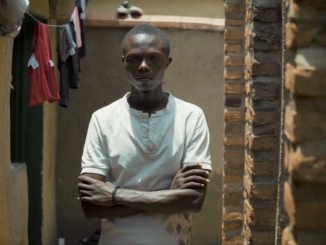
Genocide Orphans Evicted As U.K.-Rwanda Asylum Treaty Goes Into Effect
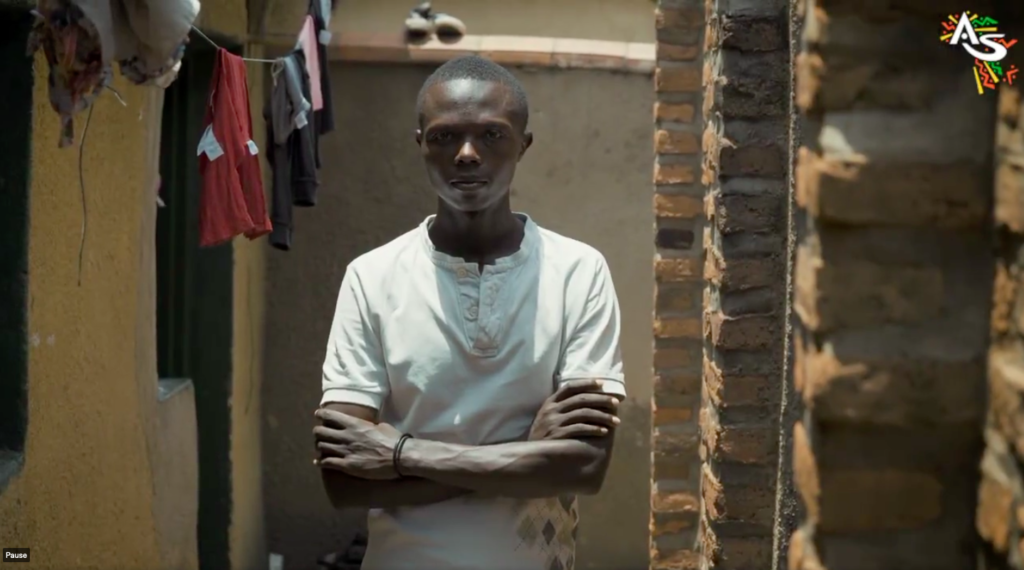
Editor’s Note: African Stream originally published this report.
Check out parts 1 and 2 of African Stream’s exclusive report in the videos below.
Check out our exclusive report from the ground in Rwanda where we explore the devastating consequences that this policy is having in Rwanda itself.#RishiSunak #Migrants #Refugees pic.twitter.com/6DVEzQ8kV0
— African Stream (@african_stream) October 31, 2022
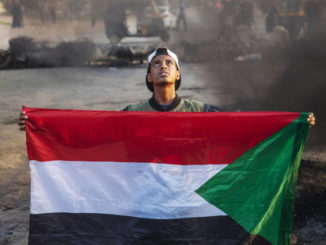
Conversations with Sudanese Activists on the Sudan Coup
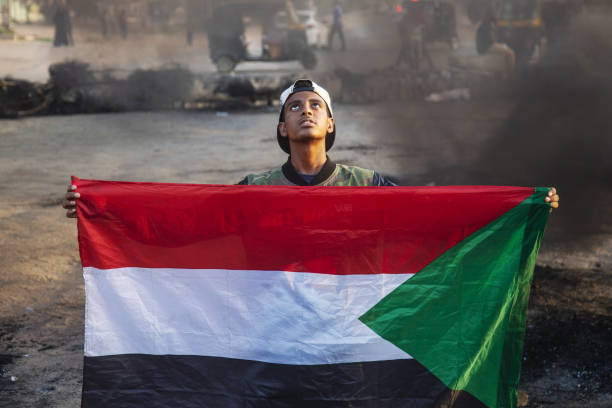
Editor’s Note: These interviews with Khartoum-based activists that the author conducted represent part 2 of a two-part series on the Sudan coup. The first part can be read here. Certain interviewees chose to use their first name or initials because of perceived security risks.
Muzan Alneel, Marxist Political Activist and Blogger
Krisboo Diallo: What is your opinion about the recent events in Sudan… Were you surprised by the coup?
Muzan Alneel: A change that leads to further concentration of power at the hands of the military was expected. To go with a plain and simple military coup, using pickup trucks and DShKs [Degtyaryova-Shpagina Krupnokaliberny, a Soviet heavy machine gun] was just a bit too silly and weird. Nevertheless, it was not a surprise. Not to me. And as I saw, not to the Sudanese public, who on October 25 looked relieved more than anything, and many using the phrase “delayed battle” to refer to the coming post-coup struggles and fights with the military.
I was surprised by the way in which the November agreement was announced. The prime minister and the military have put so little effort in manufacturing popular support for the agreement and then took a great risk by announcing it as a pre-planned large-scale demonstration [that] was taking place. They created a space for the public to instantaneously debate the agreement, share their thoughts on it and eventually rejected with chants that spread across cities on the same day.
This tells me that Prime Minister Abdalla Hamdok read the output of the last two years very wrong. It seems he thought his unpopular policies that people often warned him [against] implementing were accepted due to a personal carte blanche he has from the Sudanese people and that it will work for the agreement, too. And that is not true. In reality, the public had clear enemies (the previous regime), but was not clear in their definition of allies, due to lack of clarity in the definition of demands and policies necessary to deliver them. This stance against the previous regime was translated [as] support for the Forces for Freedom and Change (FFC, civilian group). Then and as the FFC started compromising more than the public can justify support, moved only to SPA (Sudanese Professionals Association) with clear rejection of the FFC, and in the same manner from the SPA to the civilian cabinet, and finally to just Hamdok. A better reading of the situation would have told him that his action will lead to a divorce between street action and the classic elite and bourgeois political club. Fortunately for Sudan, he miscalculated, leading to a level of radicalization in the streets that would have taken great effort and organizing to reach, if not for that.
KD: Is the civilian component an expression of the aspirations of the revolutionary masses?
MA: No, it isn’t. The policy decisions taken by the partnership government over the past two years and the efforts that the civilian component spent on passing these policies (e.g., economic liberalization policies [neoliberal policies]) are counter-revolutionary policies that, by definition, do not express the [demands] of the revolutionary masses.
The support for the cabinet was coming from the idea that there’s a common enemy, i.e., the NCP regime (National Congress Party). Even at the time when they implemented counter revolutionary policies and decisions, the majority said criticizing the cabinet will lead to strengthening the pro-NCP or pro-military arguments.
After the coup, and as a more radical position was adopted by the majority of those in the streets, the members of the civilian components—whether those not detained or those detained and later released—were still putting out their reformist statements. Even their supporters, who once justified their actions as wise, realistic and clever in handling the military, rejected them. Some of them who made the mistake of joining the demonstrations and trying to share their reformist speeches in the streets were rejected and ridiculed by the masses.
KD: The basic structure and strikes are the best way to bring down the coup?
MA: Strikes and civil disobedience (in all their possible and new forms) are the only unarmed path to bring down the coup.
The Sudanese people have watched armed resistance trying to take a shot at the NCP regime for decades with little success and extremely high risk to their communities and the overall population.
It had been our experience that armed resistance was used by the NCP to justify extreme violence and the NCP often dealt with it by creating and arming pro-government militias across ethnic lines, creating ethnic divisions and a decay in the relationship between the state and citizens that we will be dealing with for a very long time. Probably much longer than after we deal with all the militias (armed forces and RSF “Rapid Support Forces” included).
KD: What do you think about the position of regional and international powers on the current events in Sudan?
MA: International powers are following their usual path prioritizing and supporting a dictatorial form of stability over all other possible paths. It fits with their interests, so that is no surprise. Regional powers have taken a few steps back this time, it seems, in comparison with 2019. The messages from the United States asking Egypt and the Gulf states to step back might be the reason.
I believe it is also becoming clearer to the agents of international powers in Sudan that their “contacts” in the political club are no longer able to control the masses, or even reflect or predict their actual position. We can see them in Khartoum now, reaching out to create new “contacts” in spaces previously too radical for them to acknowledge, whether officially by meeting invitations or the usual tricks of closed meetings, support and “workshops.”
These actions must be watched carefully. The recent meeting invitation to resistance committees from the UN SRSG (UN Special Representative of the Secretary-General) Volker Perthes brought up a debate regarding how to deal with the international community. The UN Secretary-General [António Gutteres]’s latest statement about how the Sudanese should accept the deal pushed more people to reject the UN, or at least see it in a negative light. All committees rejected the first invitation for the first meeting. In the second meeting, some rejected [while] some joined, and asked for them to live-broadcast it and stated their rejection of the UN’s approach.
Those international mediators are a threat to the resistance committees and are working very hard to co-opt it. This, in my opinion, is the main issue we should focus on and fight in terms of international interventions. The rest—statements, sanctions, etc.—are just official blah blah blah.
KD: Does the international community have ambitions or interest with the military government?
MA: It was clear over the past two years that the international community and the International Monetary Fund (IMF) pushed for different schemes of privatization to deal with military investments. This reflected their priority to remove an armed player from the market. Other forms of army intervention in politics (e.g., oppression of the masses) are of no importance to the international community. It seems from what we saw in the past two years the international community would prefer dealing with a neoliberal civilian government, but can tolerate the military staying in the market (or even dominating it, as is the case in Egypt) for “stability.”
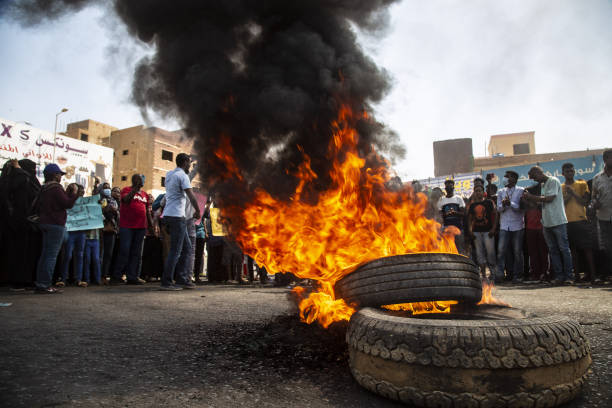
Maysoon Elnigoumi, Radical Writer
KD: What is your opinion about the recent events in Sudan… Were you surprised by the coup?
Maysoon Elnigoumi: I guess we have always anticipated a coup since the signing of the partnership between the military and the Forces for Freedom and Change (FFC). For the past year, we were all watching what could only be described as an escalation in the relationship between the military components in the government against their civilian partners. The language was very aggressive and provocative. On the other hand, the civilian partners kept speaking about a “harmonious relationship.” Despite this, the coup was still a surprise for me. I guess it was this desperate need to believe in our political parties and political elite, that they know what they’re doing, something like the adults in the room. But the coup has freed me from this delusion, I think.
KD: Is the civilian component an expression of the aspirations of the revolutionary masses?
ME: Right after the election of the FFC, you could see them moving away from some of the revolutionary slogans they have been repeating, and adopting the discourse of officials in the time of the Omar al-Bashir dictatorship. For example, about how subsidies benefit the rich or how the bread queues have disappeared, as well as the clouded statements concerning the “peace agreement” and “transitional justice,” which nobody still knows what they mean by it.
KD: The basic structure and strikes are the best way to bring down the coup?
ME: I think the strikes, the protests and the grassroots local movements are about reimagining the political scene Sudan inherited since colonialism and post-independence, in which a minority of tribal leaders, political elites and army generals set the political agenda of the state. This current movement is shifting from trying to exert pressure on a new kind of political agreement, in which the army is kept out of politics and the country is run by the traditional civilian political elite, because the statements by party leaders [indicate] they cannot envision a political establishment that does not include the army. You can see the statements by neighborhood committees now focusing on politics on the local grassroots level.
KD: What do you think about the position of regional and international powers on the current events in Sudan?
ME: From the very beginning, there was reluctant support [for] the revolution by certain regional powers. It was not until [they] had seen the same military leaders in power after the signing of the agreement that [they] shifted [their] position. Having General Abdel Fattah al-Burhan as head of the Sudanese Sovereignty Council and [General Mohamed Hamdan Dagalo] Himedti as deputy vice president of the council [guaranteed] continuing business as usual during the times of the ousted Bashir regime, whether continuing to providing manpower for the Yemen war, or land grabbing in Sudan, or curbing Iran’s influence in the region. The civilian component was unable—or perhaps unwilling—to change anything from the previous regime agenda.
KD: Does the international community have ambitions or interest with the military government?
ME: One of the victories touted by the civilian led government of Prime Minister Hamdok is the “return” of Sudan to the embrace of the “international community,” after 30 years of estrangement from international politics. However, it’s the clichéd narrative: Sudan frees itself from the shackles of despotism into the arms of unhinged structural adjustment programs, with plenty of sweet promises and bonuses from the international community, and becomes the new poster child for the IMF and proponents of the free market and the “smart” limited role of government and public institutions.
The international community wants a government that does not disrupt the narrative of current world affairs. However, it wants [the government] to continue in that role without the embarrassment of supporting a military government that targets peaceful civilians and commits crimes. That is why it is very active in the intermediary efforts of selling a power-sharing agreement to the world and to the Sudanese people, using the same condescending language of colonialism: That the people of Sudan should accept the current power-sharing agreement, as it is “best for them,” and marketing it as a rational choice, gaslighting the current revolution as irrational and unreasonable.
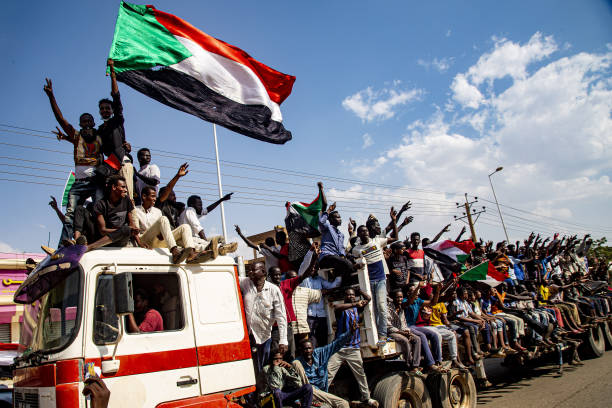
Nabila, Union Activist
KD: What is your opinion about the recent events in Sudan… Were you surprised by the coup?
Nabila: These last events were expected as there were indicators that pointed that there was an imminent coup, just by analyzing the escalating events. I was not surprised, but I had my doubts at the beginning that the military would actually execute a coup. But the bickering and the confrontation within the Sudanese Sovereignty Council and between the ministers confirmed my doubts.
KD: The basic structure and strikes are the best way to bring down the coup?
Nabila: I don’t expect that the demonstrations, nor the grassroots movements nor civilian disobedience, may defeat the coup. On the contrary, after the previous strike it seemed the authorities worked hard to dismantle the unions. But because the grassroots movement is widening its base and more people are joining, it might lead to gradually limiting the regime’s powers and influence. Perhaps this grassroots movement may reach the military institution itself and the lower ranks might self organize. The combination of civil disobedience, grassroots organizing and demonstrations may change the nature of the alternative oppressive regime, a regime which allows for a wider margin of freedoms that may allow us to organize, perhaps one that maintains one’s right to life. I am not concerned anymore with defeating the coup, but rather with how far this grassroots movement can go and what it can achieve. I believe instability of civilian rule since independence has not allowed for the building of a strong grassroots movement (meaning unions). Then it was followed by the 30 years of [Islamist] Ingaz rule, which completely dismantled the unionist movement. However, now the concept of grassroots organization has expanded to include neighborhood resistance committees and the talk for the need of local councils and local representation. Perhaps if this grassroots movement is able to maintain a balance of powers, which includes the military on one hand, and the political parties and the powerful elite on the other, perhaps we may reach some form of democratic rule, in which all parties are in a win-win situation. However, it’s hard to say what the military really wants or to what extent this balance of powers may compromise or handle. I guess this is a question we all need to think about.
KD: What do you think about the position of regional and international powers on the current events in Sudan?
Nabila: The regional powers are only concerned with serving their own agenda that benefits them. Nothing new here. But what should change is how we could regain sovereignty and limit their influence.
KD: Does the international community have ambitions or interest with the military government?
Nabila: The international community won’t have a problem with supporting any regime as long as it fulfills their wishes. Had this regime been able to gain a wider popular base, it would have been supported by the international community. I mean, why are we even presuming this? Look at [President Abdel Fattah al-] Sisi in Egypt. He has the support of the international community.
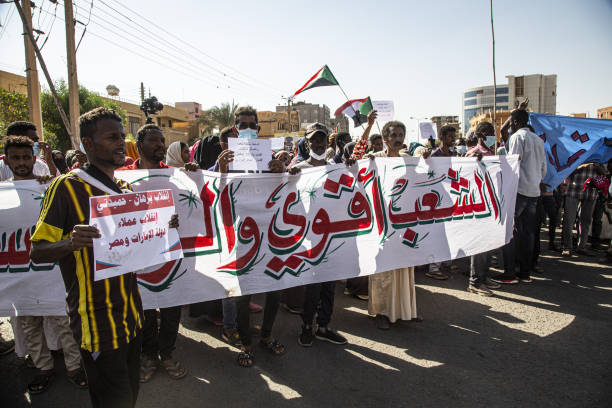
Tametti, Member of a Neighborhood Resistance Committee
KD: What is your opinion about the recent events in Sudan… Were you surprised by the coup?
Tametti: All the crimes that resulted from the coup, the murders, the detentions, the torture, the stifling of freedoms—not only in Khartoum, but also in Kordofan, Obein, Kirending and Jebel Moon—these are not separate events. But it only demonstrates that the revolution has failed in creating a system that provides people with safety and protection and public freedoms, and true peace and justice for all victims. This coup was not a sudden thing. It was preplanned and meant to ensure that no real change happens, and that the interim peace does not work on dismantling the previous regime and its beneficiaries. It’s all linked with regional powers who are in conflict with the Sudanese people. Therefore, for me, the coup was not a sudden thing, it was pre-organized and pre-planned and it is a very dangerous thing that threatens the livelihoods of the Sudanese people. We never trusted the military and the janjaweed (militia group). We never considered them partners. We’ve always viewed them as an extension of Bashir’s security council. All these crimes are a result of our great distrust for the military and the Janjaweed. Actually, the night before the coup, I was telling a group of friends that I expect the military is going to announce a coup anytime soon. This was my own analysis: The weak performance of the FFC allowed the military to strengthen their lines. Also, the escalation of events in eastern Sudan, the economic situation in which the army presides on most of the economic institutions, the negligence from the side of the army in providing protection to the civilians. Even that last coup in the army, I felt it was a way to measure how the people would react to news about a coup. Not to mention the Presidential Palace sit-in. So I was not surprised. I don’t even think the previous regime has fallen. I mean, the military leadership were the ones in control. They were the ones appointing the top people in government, like the attorney general, the head of the Judiciary. Even how they were leading the process agreement in Juba (capital of South Sudan).
KD: Is the civilian component an expression of the aspirations of the revolutionary masses?
Tametti: So everything was already in their hands, the economy, the peace process, the government. For us, in the street we never even believed that the Bashir regime had fallen. It was his same security council taking reins. It wasn’t a full revolution, and the political elites have failed us and we kept chanting in the streets: It still did not fall.
KD: The basic structure and strikes are the best way to bring down the coup?
Tametti: The civil disobedience, grassroots organization, and strikes are our peaceful tools to we are using to face this regime, and we are still innovating and creating new peaceful ways in which we close down on this coup. I mean we have disposed of [Omar Al-Bashir]’s rule with our bare chests, and his regime was more stable and more powerful, this is evident from the way this coup is brutally facing any peaceful protests, it is a sign of desperation and fear, we can see them trying to cover themselves with the slogans of the revolution, however we are working towards building local rule and representation to limit and beseige this bloody regime, we are adamant on being peaceful and we will not turn into armed protests because we have seen that how since 1953 armed confrontation has only further distabilized the country and divided it.
KD: What do you think about the position of regional and international powers on the current events in Sudan?
Tametti: Regarding the regional powers, some of them had a positive stance, such as the African Union’s initial response in condemning the coup and freezing Sudan’s membership in the Union. Also Kenya’s official response in condemning the coup. Ethiopia’s official response was that it supported the people of Sudan. South Sudan, at the beginning, called for the release of the political prisoners. So there were some responses that were against the coup. However, on the other hand, you have countries like Egypt, and the [United Arab Emirates], who have supported the coup because they are invested in having an unstable regime in Sudan that is not strong, to further exploit Sudan or to implicate us in regional conflicts and wars that we have no business being involved in. For us in Neighborhood Resistance Committees, we have longed for and we are working towards breaking from Sudan’s past, in which it’s rulers were agents of regional powers. We want to achieve full sovereignty and independence, to put Sudan’s interests first above all other agendas. And on that basis, we want to create links and relationships with the international community. We were very disappointed in UN Secretary General António Gutteres’ remark, in which he advised the people of Sudan to approve of the Burhan-Hamdok agreement. As well as the appointed [UN special] representative to Sudan, Volker Perthes’ position, urging people to accept the Burhan-Hamdok agreement as a way forward. We view [United Nations Integrated Transition Assistance Mission in Sudan] UNITAMS’ role as explicit support for the coup. And several neighborhood committees have issued statements expressing their disappointment.
KD: Does the international community have ambitions or interest with the military government?
Tametti: We do understand that the international community, the European countries, the USA—the troika—have interests in Sudan. I don’t think that’s a problem. It could be a way to communicate about the situation in Sudan. However, we see their view that a deal or a partnership that includes the military as the only way towards transition as erroneous position and a weak position that does not express the aspirations of the people of Sudan. Even the USA talking about elections as a way out is not a good position. What elections when we do not have a census, when there are a lot of issues barring the full participation of all Sudanese? We still have displaced people camps. The transitional period has not achieved any of its goals. We can only see this as a wish by the forces of the international community to advance their interests and control on Sudan rather than supporting true change and and true transition towards democracy as demanded by the people of Sudan.
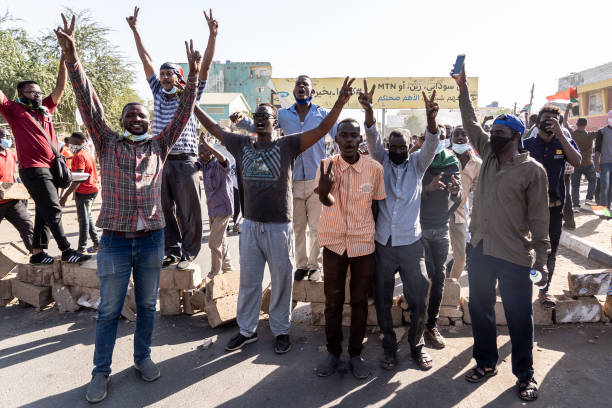
Y.S., Revolutionary Activist
KD: What is your opinion about the recent events in Sudan… Were you surprised by the coup?
Y.S.: The recent developments have done a great service to the revolution. It has expanded its horizon and has reorganized the revolutionary powers around the demands of justice, freedom and peace. This would not have been possible had it not been for the coup, which has lifted the mask on the so-called civilian-military partnership, and it has exposed those who are invested in the concentration of power and wealth in the hands of a certain political elite from both the military and the civilian parties. It has revealed that the conflict is not actually between the civilians and the military—as claimed by the FFC—but it is actually a conflict within a certain political class, unconcerned with the aspirations of the Sudanese people for a civilian rule. Therefore, these recent developments have shown the people who supports their search for justice and who stands in their way toward achieving it, including international organizations, which were never faced with hostility before, but their latest stance in supporting the coup has put them in a position of being a barrier towards justice.
I did not completely expect the coup. It didn’t make sense to me why the military leadership would want to dispose of the civilian partners who were in line with their interests. However, it’s not strange the military has ambitions to be in total control.
KD: Is the civilian component an expression of the aspirations of the revolutionary masses?
Y.S.: The current movement, I believe, is capable of taking down the coup.
KD: What do you think about the position of regional and international powers on the current events in Sudan?
Y.S.: The regional powers intervene aggressively in Sudan to ensure the continuance of previous investments or in hope of newer ones, and to ensure the flow of raw materials and natural resources with no regulation. Sudan is an open battleground for regional and international conflicts to be fought on, amidst a total absence of any national agenda from the civilian and military ruling elites. The regional powers are unconcerned with the aspirations of the Sudanese people, But when there is threat to their interests, it is only logical that they side with the generals, the warlords and some armed militias.
KD: Does the international community have ambitions or interest with the military government?
Y.S.: The international community, by which we mean the United States, is interested in dragging Sudan within the world order of trade agreements and the financial system. It supports whomever achieves those interests. Hamdok, with his background, is the most likely candidate. Since he is part of what is basically a military regime, supporting him is actually supporting military rule.
Kribsoo Diallo is a Cairo-based Pan-Africanist researcher in political science related to African affairs. He has written for many African magazines and newspapers. Diallo has contributed to translated editions of papers and articles in Arabic and English for several research centers within the African continent.
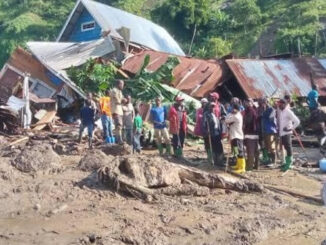
400-Plus Perish in Floods and Landslides in Democratic Republic of Congo
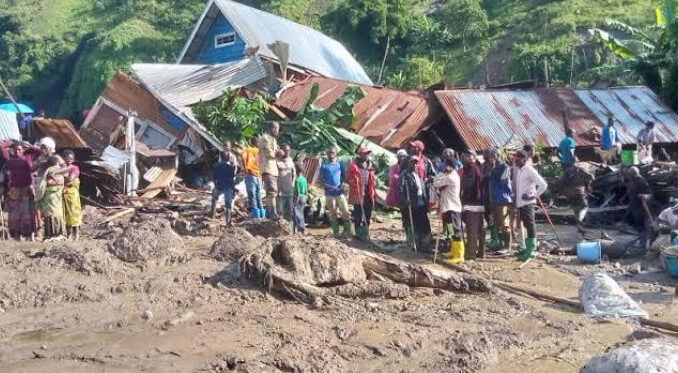
Editor’s Note: This report was originally published via email by Friends of the Congo.
BUSHUSHU, South Kivu Province, Democratic Republic of Congo—On Thursday, May 4, under the effect of heavy rain, the Nyamukubi and Chishova rivers burst their banks, causing major mudslides and landslides. In the affected areas, the damage is enormous: Entire villages have been devastated by the waters and the assessments are still provisional.
#URGENT: Quand l'inondation de Kalehe est en cours. Plusieurs sources locales à Bisunzu, près de Rubaya indiquent qu'un éboulement de terre a touché cette région ce lundi 08 mai. Le bilan n'est pas encore connu mais c'est près d'une dizaine de creuseurs artisanaux. #RDC pic.twitter.com/tmhdZXQ6bc
— Akilimali Saleh Chomachoma (@akilimalisaleh) May 8, 2023
